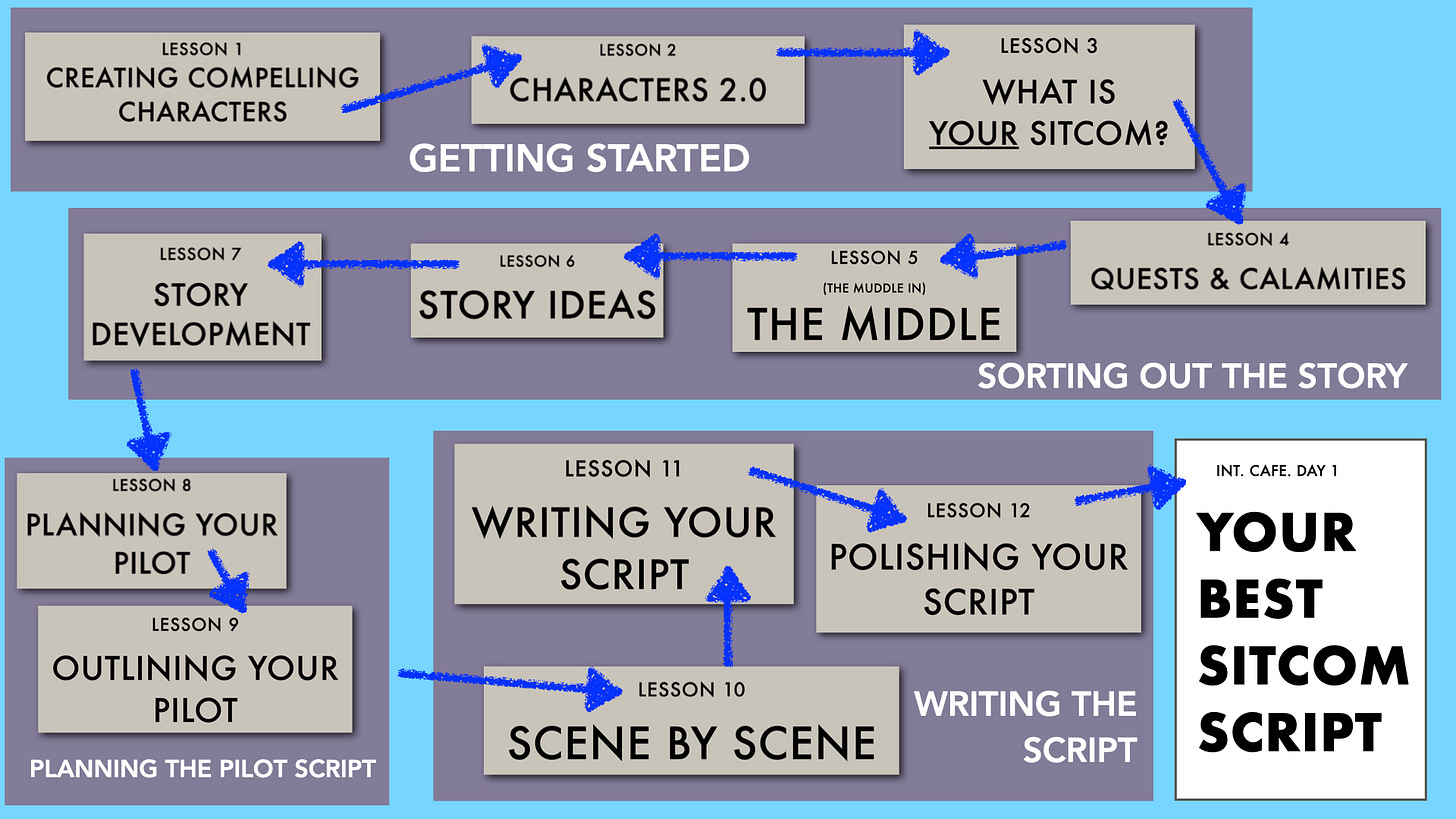You have a clear quest. You’re trying to write a sitcom script that you’re happy with. It’s a long road that will take weeks, and probably months. But you and I know what the end result should be: a thirty-page script that has been sent to the right person in the right format by the right time.
You can at least succeed in that goal, if not the goal of being shortlisted by the script competition or contacted by the producer or agent.
The flip side of this is endless noodling around with a script with no real end in sight, and no sense of whether it’s a sitcom, a drama, a movie or a novel. It’s very frustrating.

Flora is Floundering
In the same way, it’s very frustrating to read a sitcom script in which the protagonist, let’s call her Flora, an ambitious young primary school teacher who wants to make the world a better place one child at a time, doesn’t have a clear quest for the episode.
This is especially true in a pilot episode, where it’s easy to be sucked into the set-up and establish the world.
Flora’s aim in life is to make the world a better place. Great. She enters the classroom with optimism and joy. Great. But, what is she trying to achieve this week? What is her struggle for the episode with a clear win/lose goal?
It’s tempting to have her putting up inspiring posters, encouraging her classroom assistant or helping Little Timmy learn his alphabet all that the same time. It’s a blizzard of activity. Some kind of story has started. But what’s the endpoint? Where is it headed?
Focus on one of them which can have a clear outcome. Can she get Timmy to say his alphabet in front of the class with his mum watching at the window, so that she is inspired not to give up on Timmy, and read to him at bedtime?
That gives her a clear goal for the episode. She needs to coach Timmy, motivate him to stand up and contrive to have his mum watching.
And we really know she’s succeeded when we see Timmy’s mum reading to him while he’s tucked up in bed.
Clear Consequences
So, is it clear what they have to achieve? We need to know what they’re aiming for, so we know whether they are winning or losing. Say your hero has to drop a dress size so they can win a bet about getting back into her wedding dress. Another character wants to apologise to his Mum on Mothers’ Day. And what happens if they don’t achieve that quest? There have to be clear consequences.
Like it or not, when someone is watching a sitcom, they have a story arc in their heads, and if you’re not helping the audience along that story arc with a firm shove, they are going to be frustrated. The audience worries about not following the story, or missing important details, so the clarity of the quest is really important.
TAKE ACTION
Go back to that point where the story starts.
Is it clear what the character is trying to achieve, and by when?
And what happens if they don’t achieve it?
It may be you need to think more clearly about the story, as there’s a chance this character is merely going to drift through the episode. We don’t want that. We want them to make choices, usually the wrong choices, and make it worse, putting themselves and their relationships under pressure, as that’s normally where the comedy lies.
Further Listening
On the Sitcom Geeks podcast, we talked about plotting in Episode 127 and also Episode 212, where you can find out about when James blew eleven quid on an ill-fitting pair of designer trousers.
Further Viewing
You could go right back to basics and allow me to walk you through the whole process of writing a sitcom in this course. The idea is to help you produce a script that you’re actually proud of. Now there’s a nice clear goal…


